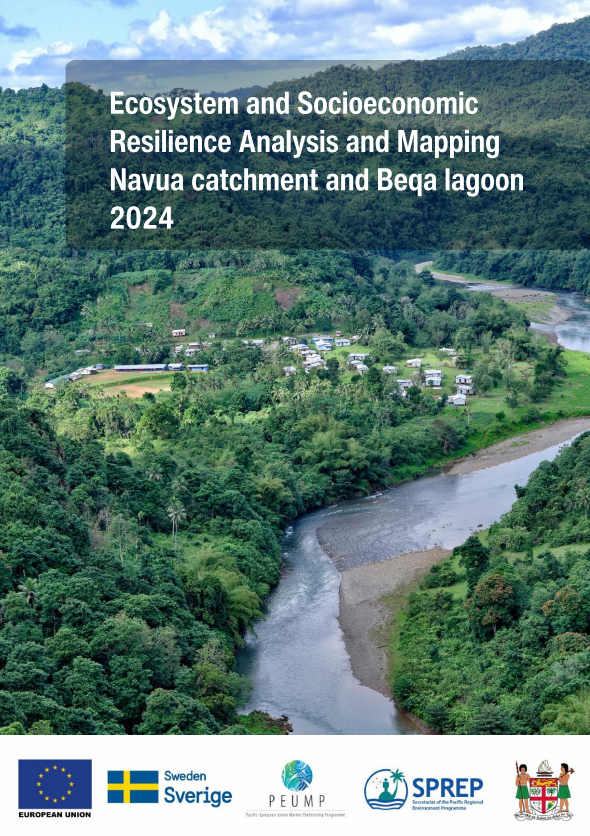
This report presents the Ecosystem and Socioeconomic Resilience Analysis and Mapping (ESRAM) prepared as part of Objective 4. ESRAM is a framework employed globally to evaluate and strengthen the resilience of both, natural ecosystems and the socioeconomic systems closely linked to them. ESRAM provides an integrated approach that considers both ecological and social dimensions, providing decision-makers with a systematic tool to analyse relationships between ecosystems and the communities they support. By mapping vulnerabilities and strengths using GIS software, ESRAM helps identify and enable the design of adaptive strategies for sustainable development. The identification of ecosystem‐based adaptation options is critical in dynamic environmental and socioeconomic landscapes such as those found in Fiji. Resilience through adaptive strategies is required to combat challenges like climate change, natural disasters and increases in human activities. Much of the broader evidence base is documented in other sections of the detailed project documents. This is deliberate to ensure that the reader of this report is able to focus on the key information and points.














